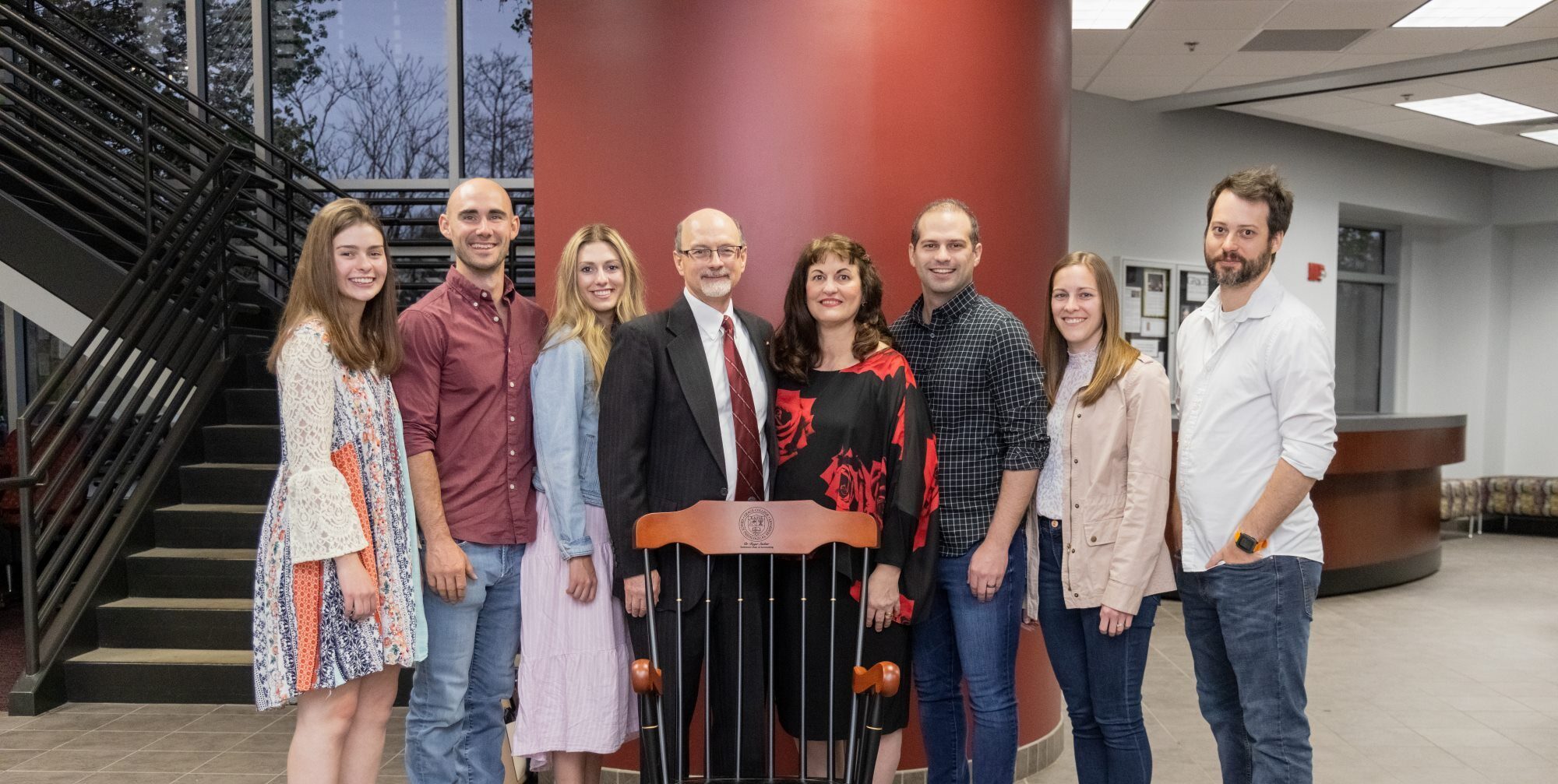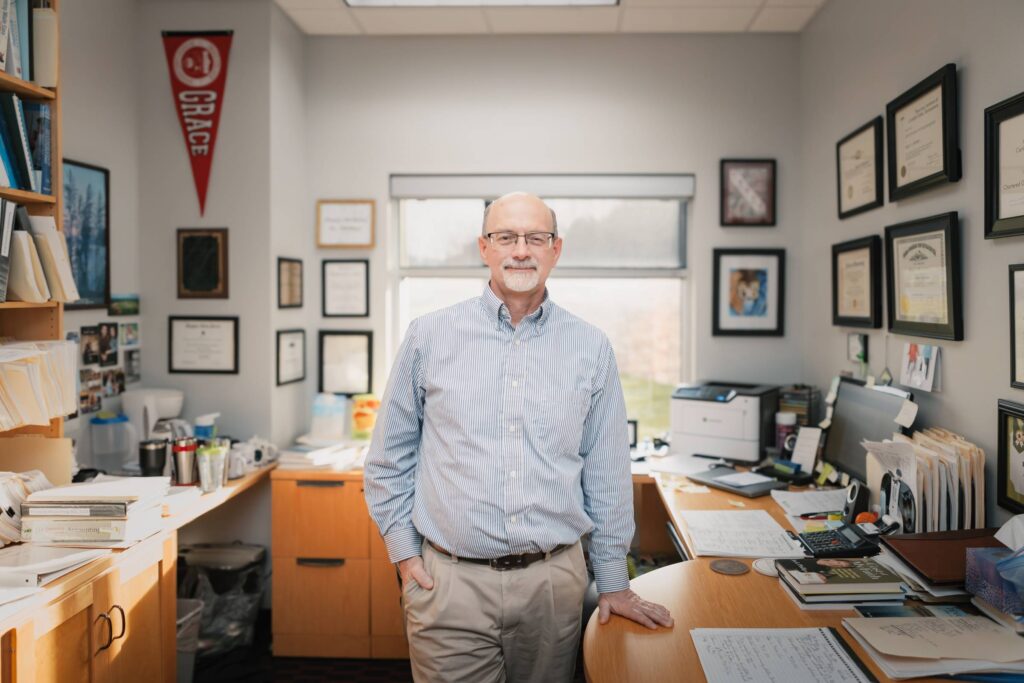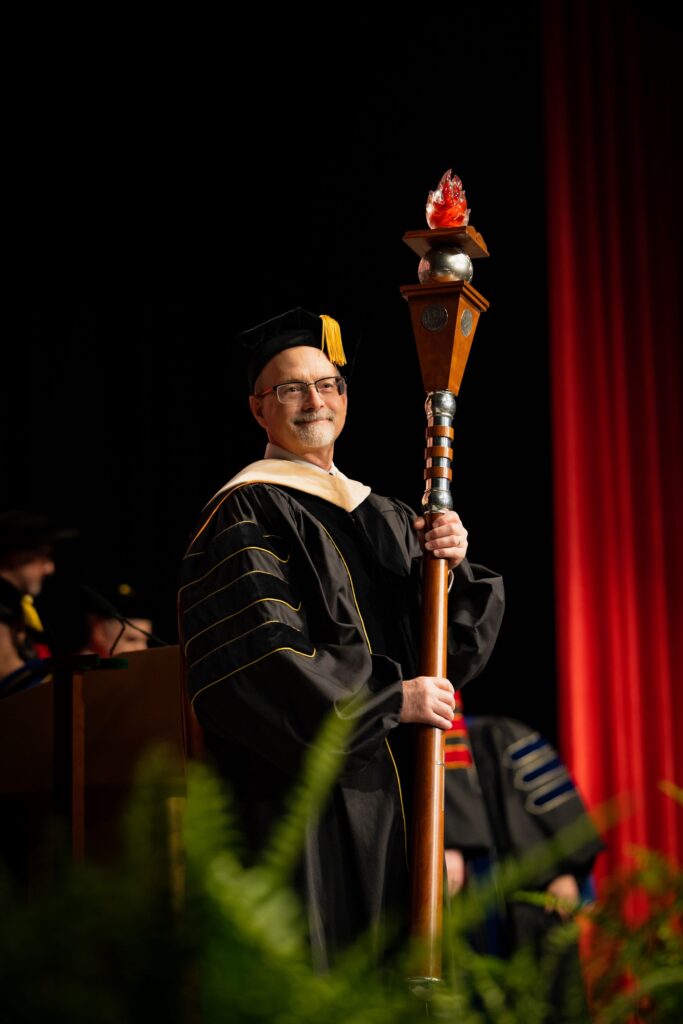Faithful Suffering
After completing his master’s at IU South Bend, Stichter started teaching at Grace in January of 1995.
It took him a few years to settle before his daughter, Rebecca, arrived in March of 1997. Rebecca was born with a three-chambered heart and VATER syndrome, a rare congenital disorder. She spent 21 of her 26 months of life at Riley Children’s Hospital, and Stichter and his wife spent much of that time at the Ronald McDonald House.
During these trying years, Stichter says Grace was the perfect place to be. Vice President of Academic Affairs Dr. Dave Plaster (BA 71, MDiv 74, ThM 84) gave Stichter ultimate flexibility. As long as his classes were taken care of, he was not required to be on campus, no questions asked.
“If I had kept my corporate job, and if I had become an owner of Caremet, I would have either lost my job, my family or both,” said Stichter. “Our social worker said 85% of the dads of a child with a heart issue at Riley leave the family.”
Stichter looks back and sees the intricacies of God’s divine timing.
Building a Program
As Stichter got back into a regular teaching routine, he got to work building the program and strengthening its reputation. When he arrived, there were 13 students majoring in accounting.
“One of the keys to our program is you don’t have to be the smartest, and you don’t have to be the best, but you do have to work hard,” said Stichter.
And Stichter promises his students he will work equally hard for them: He’ll return their homework the next day and hold review sessions before tests. He will go above and beyond the job description to give his best to students.
“I expect a lot,” said Stichter. “There’s a lot of homework. It’s going to take time. And the goal is to help you learn how to learn better. This will help you throughout your life, whether you’re in marketing, management, or accounting.”
Stichter’s approach to teaching was attractive to students. By 2001, the 13 majors had nearly tripled.
At the time, Stichter was offered a job as CFO at White’s Residential & Family Services, now named Josiah White’s. Every year, Grace would call Stichter and ask him to come back. But he loved his job at White’s and felt the Lord had more work for him there.
A few years in, the C-suite leaders at White’s read “Good to Great” by Jim Collins. In the book, Collins asserts businesses should operate where three concentric circles intersect: what you’re passionate about, what you could be best in the world at, and what makes you money. In the middle of those circles is your sweet spot.
“For some reason, God said, ‘Apply that to your own life,’” said Stichter. “So I did. Every time I applied it to my life, I realized my passion was teaching, and the thing I could be the best in the world at was teaching. The problem was the finances.”
With six kids and a commitment to his wife staying at home, he would need a pay raise. When Grace asked him to come back the third year, his answer had changed.
“I said, ‘Look, I’ll mow the lawns in the summer. I’ll do whatever you want. But I do want to come back,’” said Stichter. “‘I believe God wants me back at Grace.’”
When Stichter returned to Grace in 2004, the number of accounting majors had dropped back to 13. Stichter began to grow the program again, identifying students on campus who were gifted at dealing with numbers.
“Part of my passion is ensuring young people don’t miss it if this is how God’s made them,” said Stichter. “Because I almost did miss it.”
Within 10 years, the program had 40 to 50 majors, and in 2010, Grace’s graduates made program history: They scored 10th in the nation on the CPA exam pass rate among nearly 800 schools.
“They were an unusually gifted group of students academically, and many of them have gone on to high-level careers,” said Stichter. “When we had our senior banquet at the Boathouse, I gave a little farewell speech, and I cried.”
The top-10 CPA pass rate report put the program on the map. People started taking notice, and Stichter started tracking the graduates’ pass rates year to year.






